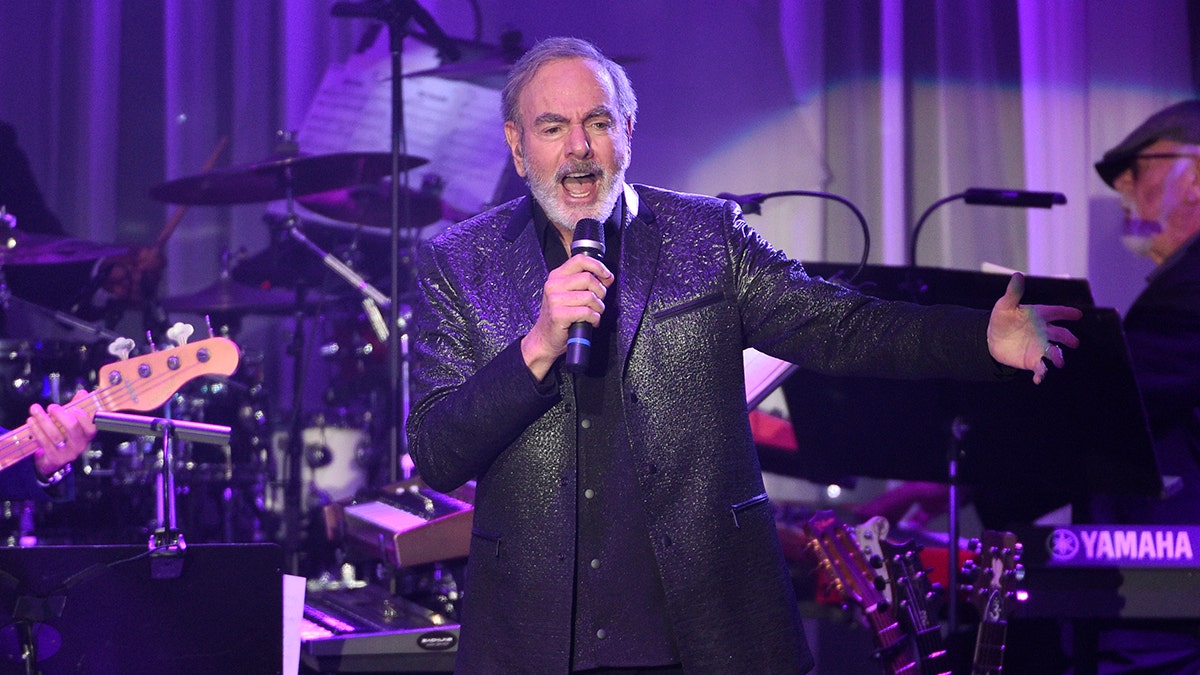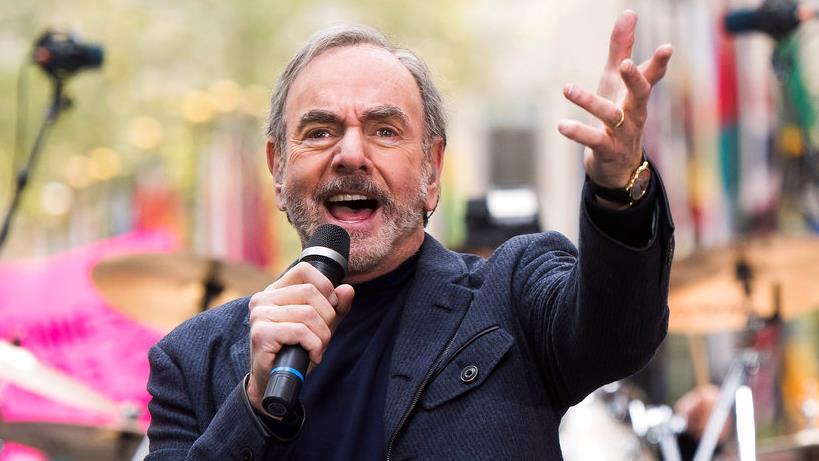
Neil Diamond, seen here in February 2017, has announced he'll retire from touring. (Chris Pizzello/Invision/AP, File)
Music icon Neil Diamond saddened his fans around the world when he announced Monday that he is retiring from touring because he has Parkinson's disease, a progressive movement disorder with symptoms that tend to gradually increase over time.
Diamond said that on the advice of his physician he is cancelling the third leg of his 50th anniversary tour a few days short of his 77th birthday. The Recording Academy will honor the singer, who has sold 130 million albums, with a well-deserved lifetime achievement award at Sunday’s Grammy Awards.
Diamond has entertained millions around the world for decades with heartwarming, sad as well as uplifting songs including “Sweet Caroline,” “You Don’t Bring Me Flowers” and “Cracklin’ Rosie.”
Parkinson’s affects a million people in the U.S. alone. Among them are brave actor Michael J. Fox, who was diagnosed in 1991 and started an amazing foundation committed to researching this terribly disabling disease.
I hope that Diamond will lend his voice, heart and funds to the fight against Parkinson’s as well, which needs a lot more spotlighting and a whole lot more research. Being honest and forthcoming, as Diamond is doing now, sends a positive message of courage to the world.
I am alert to the dreaded symptoms of Parkinsonism in my daily medical practice. I look for: problems walking (shuffling unsteady gait); frequent falls; rigidity (muscle tone problems); resting tremors; and problems with constipation and with the skin.
Depression and problems thinking, which can progress to dementia, are also associated with Parkinson’s. In the case of Neil Diamond, he may develop problems with his voice because of throat muscle involvement.
Parkinson’s disease involves degeneration of the Substantia Nigra, a structure deep in the brain that makes the crucial hormone dopamine. Some 15 percent of sufferers have a family history of the disease, and the responsible genes are in the process of being identified.
Parkinsonism is both a disease and a syndrome, meaning that there are other causes beyond the disease. These include blows to the head, as suffered by boxing legend Muhammad Ali; side effects from the long-term use of anti-psychotic drugs; and vascular Parkinsonism, caused by small strokes rather than direct degeneration of brain cells.
President George H.W. Bush suffers from vascular Parkinsonism and it has confined him to a wheelchair and led to lung infections due to difficulty managing secretions.
Current treatments are woefully inadequate and are aimed mostly at relieving symptoms. Sinemet (Carbidopa-Levodopa) works by replacing dopamine to help restore movement. Unfortunately it may also cause dizziness, drowsiness or other symptoms, including twisting movements, which limit its use.
Deep brain stimulation involves implantable devices with electrodes placed in affected areas of brain tissue. This is a growing field and is being used earlier and earlier in the disease with positive results.
Gene therapies are being tested with the hope of possibly enabling damaged nerve cells in the Substantia Nigra of the brain to recover. Early results are promising.
Neil Diamond’s involvement and forthrightness about his disease can only help in the fight against the most common movement disorder in the world. Neurodegenerative diseases are shrouded in stigma, and Parkinson’s disease is no exception.
Patients and caretakers alike are affected. It is very difficult to manage the disability that results and keep a positive attitude. But if anyone can do it, Neil Diamond can. Consider the opening lyrics of his first No. 1 hit, released back in 1970.
“Cracklin' Rosie, get on board,
We're gonna ride till there ain't no more to go,
Taking it slow,
Lord, don't you know.”
We all wish that Neil Diamond had not joined the ranks of those with Parkinson’s. But hopefully he can bring increased public awareness and create increased support for research on new treatments and an eventual cure years from now for this very difficult and disabling disease.

